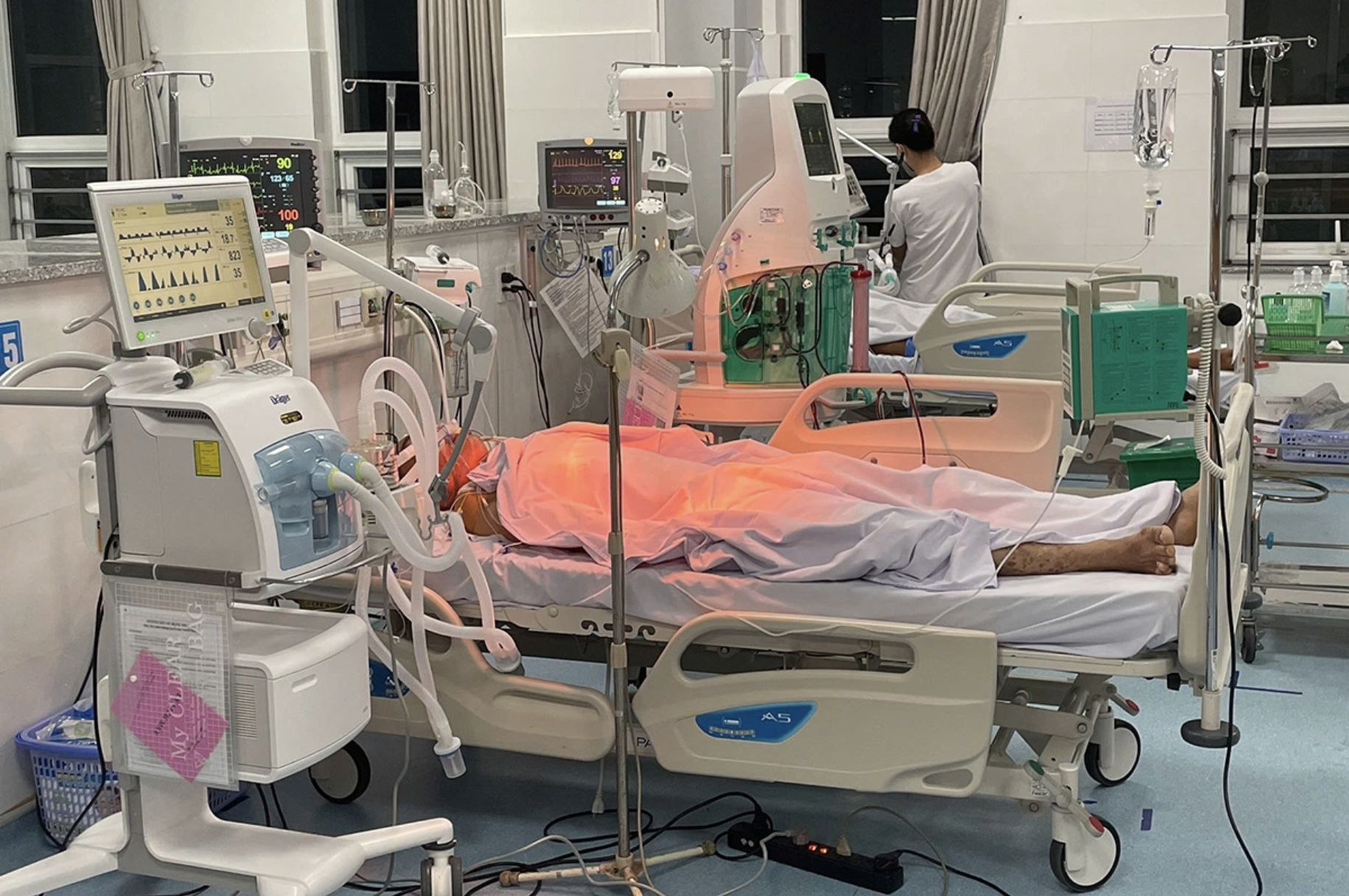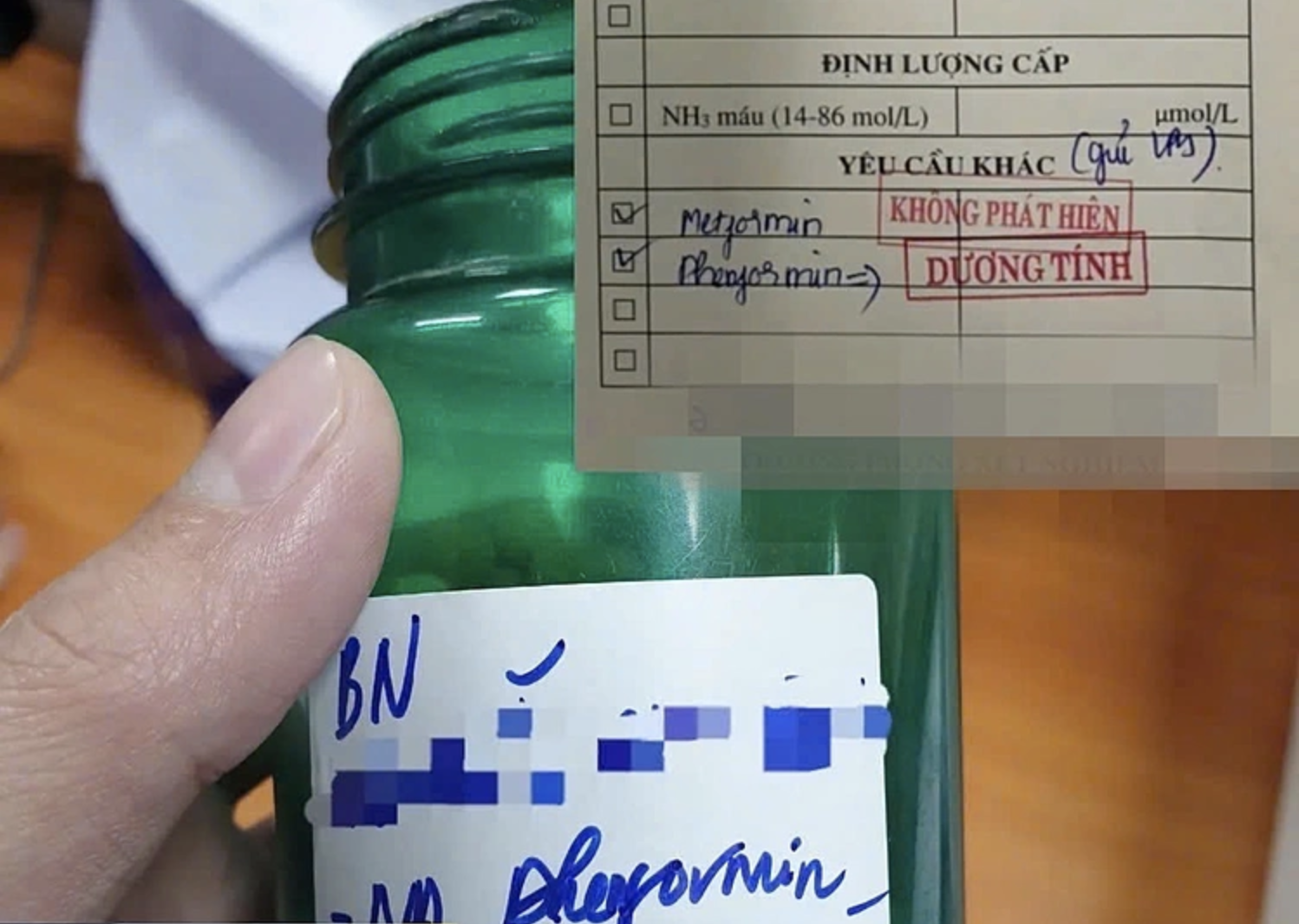Recently, the Intensive Care Unit of the 71st Central Military Hospital admitted a 70-year-old woman in critical condition due to acute renal failure and electrolyte imbalance. She had suffered from diabetes for many years but hadn't followed her doctor's prescribed treatment plan. Instead, she used herbal remedies and some pills bought online through an acquaintance's recommendation.
Test results revealed that the medication she was taking contained Phenformin, a substance banned by the US Food and Drug Administration (FDA). Doctors stated this substance can cause liver and kidney damage, and even death if used for an extended period.
After several days of intensive treatment, her condition stabilized, but her kidney function remained poor, potentially requiring regular dialysis.
In another case, a 43-year-old man with diabetes was prescribed insulin injections but didn't adhere to the treatment plan. Seeing an advertisement for traditional medicine pills online, he purchased and consumed them. He subsequently experienced severe abdominal pain and vomiting, leading to his admission to Vung Tau General Hospital.
While doctors were taking blood samples, he went into cardiac arrest twice but was successfully resuscitated by the medical team. After two weeks of treatment, including dialysis and cardiovascular support medication, his condition stabilized.
Similarly, Thai Nguyen Central Hospital admitted a 72-year-old woman who experienced cardiac arrest after a week of discontinuing her diabetes medication. She suffered severe metabolic acidosis, leading to cardiac arrest, requiring ventilation and continuous dialysis.
 |
The 43-year-old man upon arrival at Vung Tau General Hospital. Photo: Hac Minh. |
While Vietnam lacks specific statistics on the number of patients experiencing complications from stopping or treating diabetes with folk remedies, hospitals frequently encounter such critical cases. Most patients discontinue medication when they feel their condition is stable or trust unverified remedies.
According to Dr. Pham Dang Hai of the 108th Central Military Hospital, adhering to the treatment plan and regular check-ups are crucial for chronic diseases like diabetes. However, many patients don't follow up, continuing to use old prescriptions or stopping medication when symptoms subside, unaware of the potential consequences. Dr. Hai added that some unverified herbal remedies may be mixed with dangerous substances like phenformin, causing liver failure, kidney failure, severe blood acidification, and even death.
Sharing the same view, Associate Professor Dr. Do Van Dung, former Head of the Public Health Department at the University of Medicine and Pharmacy in Ho Chi Minh City, noted the long-standing issue of self-diagnosis, self-prescription, and discontinuation of treatment without consultation. Beyond the reasons mentioned above, this can also stem from patient negligence and disregard for their own lives or those of their family members.
Another group disrespects medical staff, becoming easily irritated, short-tempered, and losing their composure, preventing them from accepting the doctor's advice. Notably, some individuals who believe they understand their illness or medication find it challenging to communicate with doctors, or assume the doctor's instructions are inferior to advice from other experts.
According to Dr. Dung, patients arbitrarily leaving the hospital or discontinuing medication is extremely dangerous, potentially "costing them their lives." Medical professionals are trained individuals, and even non-specialist doctors possess certain emergency skills. When unusual symptoms appear, doctors can quickly assess and respond within the golden time, saving lives and preventing complications. Furthermore, only medical personnel have the authority and competence to make accurate diagnoses and recommendations, so compliance is essential.
"However, this can't be entirely blamed on the patients," he said, suggesting that sometimes medical staff's communication skills are lacking, and patients may not fully grasp the situation or understand their condition, hindering effective communication. Occasionally, medical professionals may also be influenced by personal emotions due to family or health issues, although such cases are uncommon. Most medical staff strive to fulfill their duties with "a warm heart and a cool head," prioritizing saving lives.
Currently, no diabetes association or researchers claim a cure for this disease. However, it can be prevented through regular exercise, a healthy diet, maintaining a healthy weight and physical condition, and early elimination of risk factors. Annual blood sugar tests can detect the disease and prediabetes early on.
If diagnosed, most patients receive prescriptions for a specific period (maximum one month), with instructions to schedule a follow-up appointment when the medication runs out or if unusual symptoms appear. Follow-up appointments allow doctors to monitor and evaluate treatment effectiveness, adjusting and tailoring medication accordingly.
Additionally, doctors can conduct examinations, tests, and detect any side effects from current medications, implementing timely solutions like changing medication, reducing dosage, or hospitalizing the patient for serious complications.
 |
The bottle of pills the 70-year-old woman purchased online. Photo: Hospital provided. |
Doctors advise patients to carefully review their prescriptions, not just the prescribed medications but also the doctor's instructions, and adhere to them strictly. If anything is unclear, consult medical staff for comprehensive and accurate advice. Schedule follow-up appointments as instructed.
In unavoidable circumstances, patients can consult their doctor by phone to postpone their appointment by a few days and adjust medication during that time. Avoid taking medication from multiple sources, arbitrarily stopping medication, or using herbal remedies.
Patients should maintain respect and composure to understand the doctor's advice, facilitating clear communication and examination. If there are any concerns, family members should communicate them rather than jumping to conclusions or insulting medical staff.
Furthermore, medical practitioners should treat patients like family, calmly providing concise and simple explanations to ensure understanding and prevent conflicts, Dr. Dung recommended.
My Y












